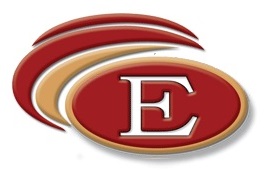Everett, Massachusetts
From Wikipedia, the free encyclopedia.
Everett is a city in Middlesex County, Massachusetts, United States, directly north of Boston, bordering the neighborhood of Charlestown. The population was 49,075 at the time of the 2020 United States Census.
Everett was the last city in the United States to have a bicameral legislature, which was composed of a seven-member Board of Aldermen and an eighteen-member Common Council. On November 8, 2011, the voters approved a new City Charter that changed the City Council to a unicameral body with eleven members – six ward councilors and five councilors-at-large. The new City Council was elected during the 2013 City Election.
History
Everett was originally part of Charlestown, and later Malden. It separated from Malden in 1870.
In 1892, Everett changed from a town to a city. On December 13, 1892, Alonzo H. Evans defeated George E. Smith to become Everett’s first Mayor. Landfill has expanded the Everett shoreline over the centuries. At some point between 1905 and 1912, it connected the mainland to what was formerly White Island in the Mystic River. The bridge of the Grand Junction Railroad was originally built using this island for part of the crossing.
The city was named after Edward Everett, who served as U.S. Representative, U.S. Senator, the 15th Governor of Massachusetts, Minister to Great Britain, and United States Secretary of State. He also served as President of Harvard University.
In 1971, Distrigas of Massachusetts began importing liquefied natural gas (LNG) at its Everett Marine Terminal in the Island End section of Everett. This terminal was the first of its kind in the country.
Everett’s business district is focused on Broadway, with many businesses and restaurants along the route. Bus routes that run through Everett are 97, 99, 104, 105, 106, 109, 110, 111, and 112. Everett Square is a small bus-hub, with bus routes 104, 109, 110, 112 and 97, all served by MBTA. A bus lane exists on Broadway, from Glendale Square (Ferry Street), to Sweetser Circle. The Everett City Hall, Everett Fire Department, Parlin Memorial Library, and a few health centers, businesses and restaurants are centered around Everett Square on Broadway, Norwood St and Chelsea St. Everett Stadium is also near the Square. Route 16 is just south of the Square, allowing quick access to a major highway. Besides Everett Square, Gateway Center just off Route 16 in Everett is a major retail shopping district, with big box stores like Target, The Home Depot, and Costco.
On June 23, 2019, the Encore Boston Harbor casino (formerly called the Wynn Casino and Resort of Boston) opened on a 33-acre parcel of land along Broadway and the Mystic River in Everett, which had been previously used for industrial purposes. After a remediation process to clean the site, Wynn Resorts constructed Encore Boston as an integrated resort with a hotel, a harborwalk, restaurants, a casino, spa, retail outlets, and meeting and convention space. Public amenities along the year-round harborwalk include a picnic park, paths for bikers and pedestrians, viewing decks, waterfront dining and retail, a performance lawn, floral displays, and boat docks. Wynn Resorts described the $2.6 billion development as “the largest private single-phase construction project in the history of the Commonwealth of Massachusetts.”
Everett has an increasing population as people are seeking new households near downtown Boston while not wanting to pay the higher prices of living now associated with surrounding municipalities, such as those in neighborhoods of Boston, Cambridge, or Somerville.
Demographic
As of the 2010 United States Census, there were 41,667 people, 15,435 households, and 9,554 families residing in the city. The population density was 11,241.1 people per square mile (4,345.0/km2). There were 15,908 housing units at an average density of 4,701.3 per square mile (1,817.2/km2). The racial makeup of the city was 53.6% Non-Hispanic Whites, 14.3% African American, 4.8% Asian, 0.4% Pacific Islander, 2% from other races, and 3.8% were multiracial. Hispanic or Latino of any race were 21.1% of the population (9.3% Salvadoran, 3.0% Puerto Rican, 1.1% Colombian, 1.1% Dominican, 1.0% Guatemalan, 0.8% Mexican). The city also has a large number of people of Brazilian and Italian descent. In 2010, 33% of the residents of Everett were born outside the United States. This percentage was around 11% in 1990.
There were 15,435 households, out of which 27.6% had children under the age of 18 living with them, 41.8% were married couples living together, 15.2% had a female householder with no husband present, and 38.1% were non-families. 31.3% of all households were made up of individuals, and 11.8% had someone living alone who was 65 years of age or older. The average household size was 2.45 and the average family size was 3.11.
The population was spread out, with 21.6% under the age of 18, 8.9% from 18 to 24, 34.8% from 25 to 44, 19.9% from 45 to 64, and 14.7% who were 65 years of age or older. The median age was 36 years. For every 100 females, there were 91 males. For every 100 females age 18 and over, there were 87.4 males.
The median income for a household in the city was $49,737. The median income for a family is $49,876. Males had a median income of $36,047 versus $30,764 for females. The per capita income for the city was $23,876. About 9.2% of families and 11.9% of the population were below the poverty line, including 16.9% of those under age 18 and 10.0% of those age 65 or over.
